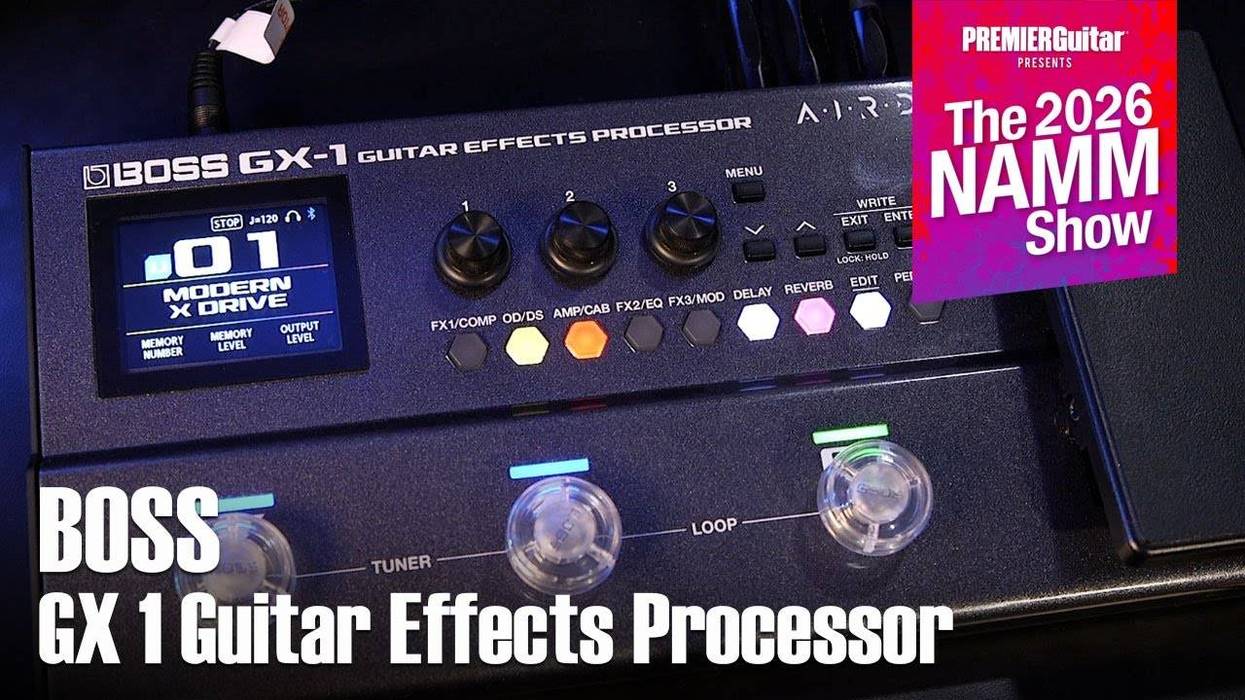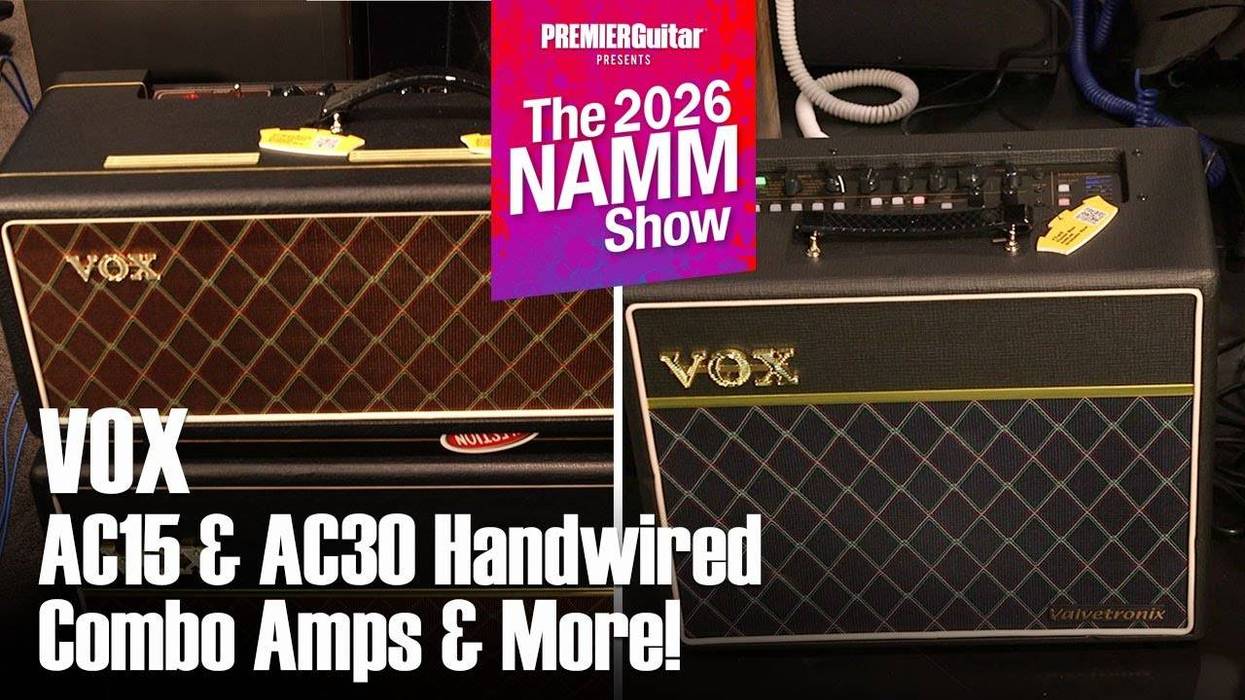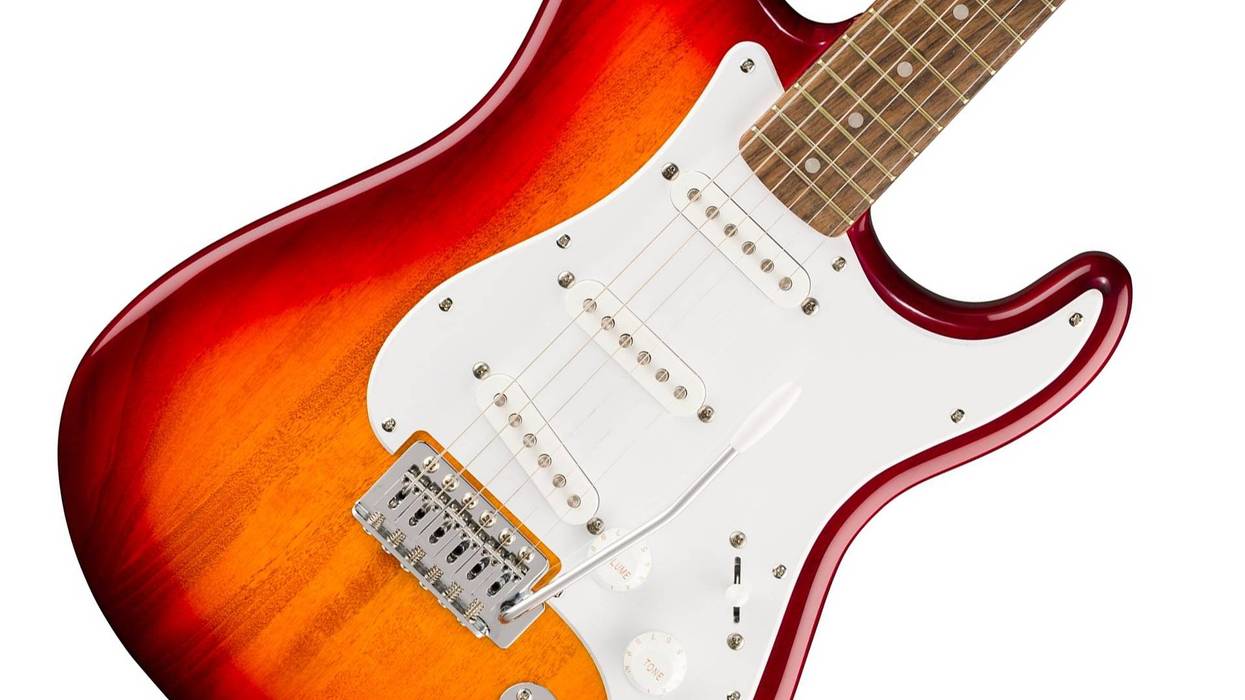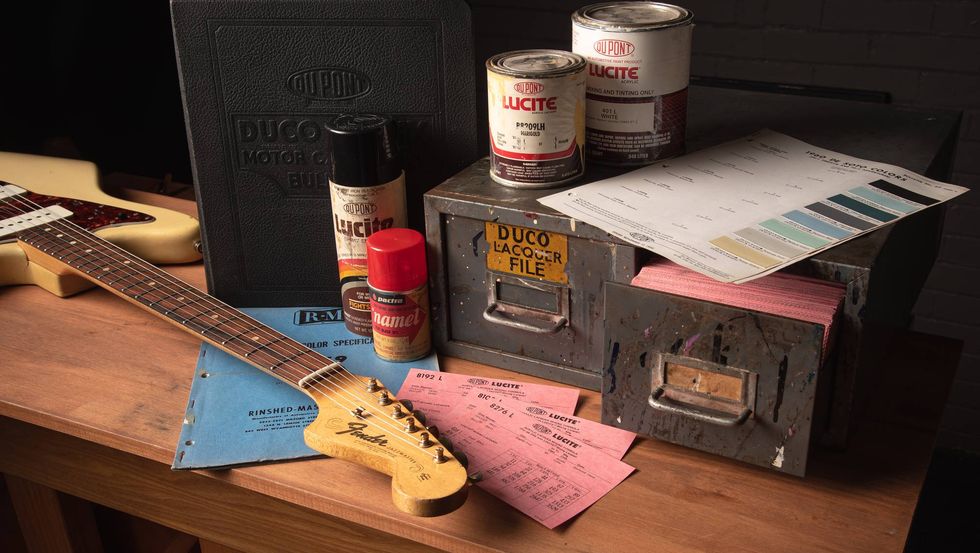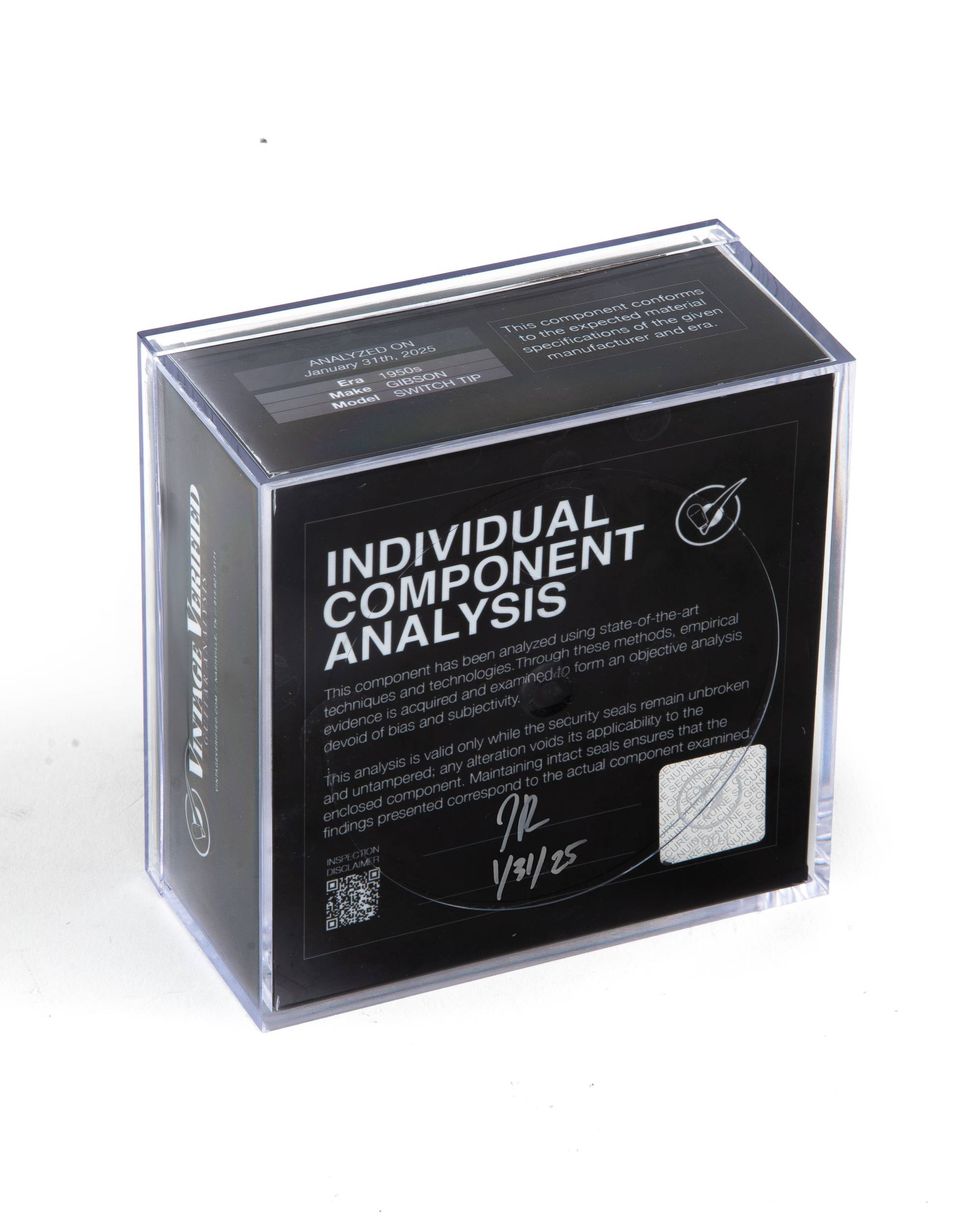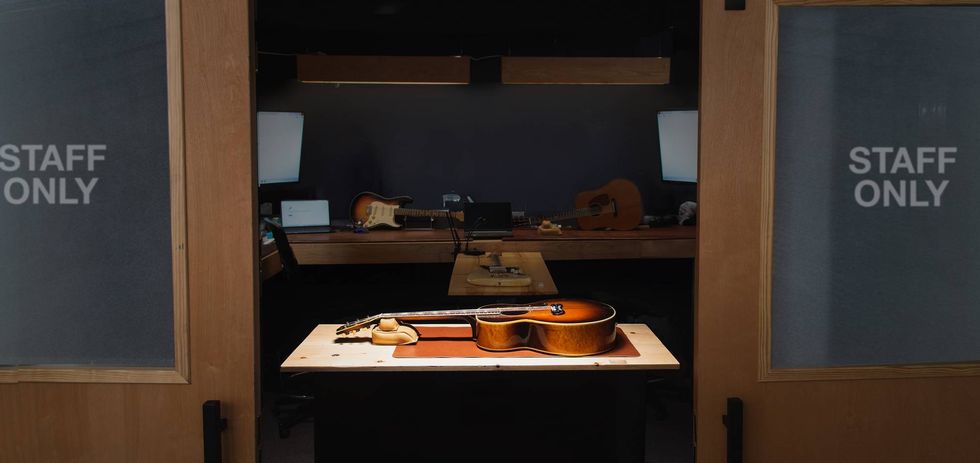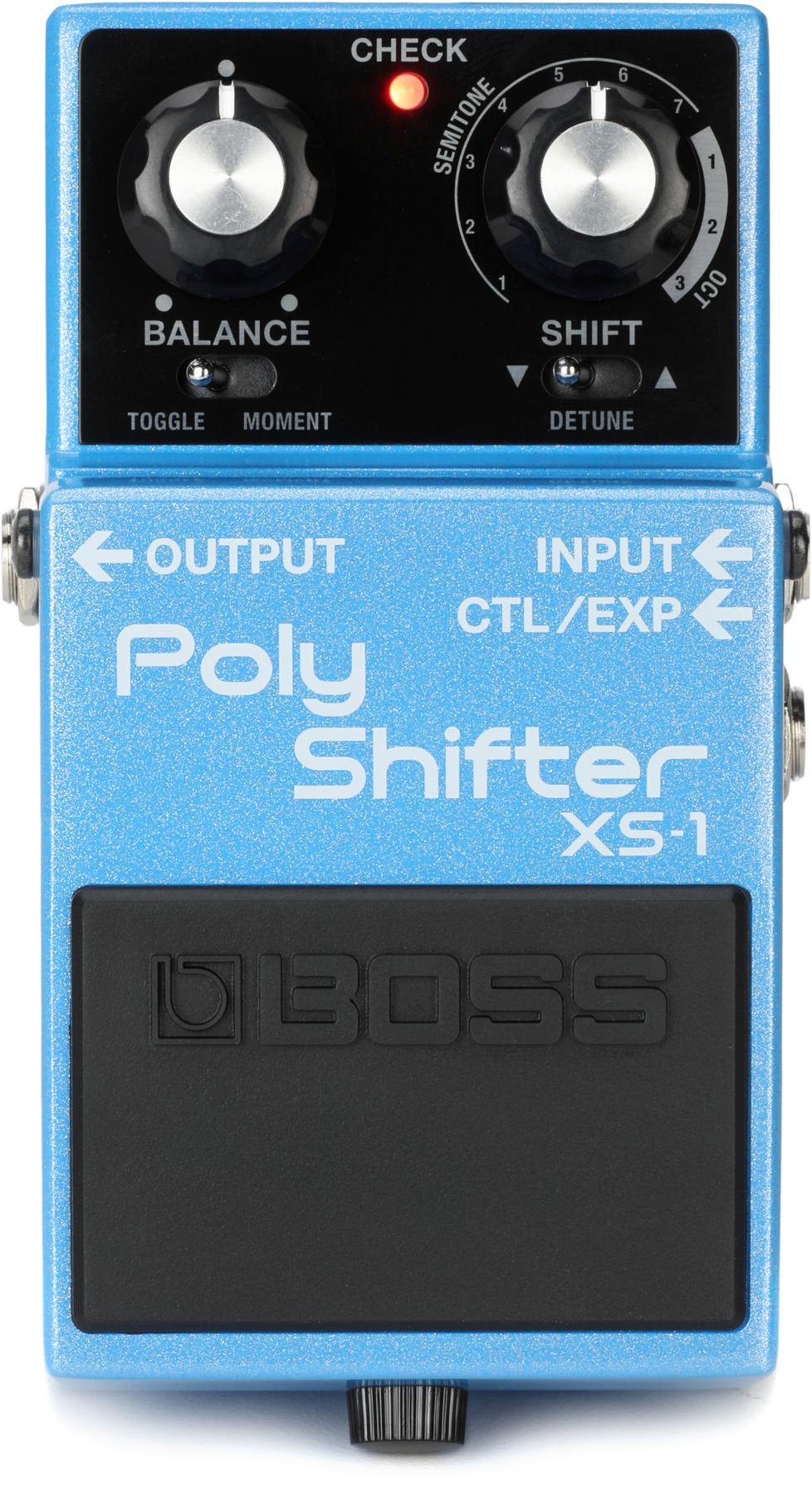What’s a high-end luthier to do during tough economic times? For many, the answer is a budget line built in Asia. But Doug Kauer of Kauer Guitars takes a different tack. While regular Kauer models can list for north of $4,000, his new brand, Titan, sells the KR1, their debut model, for a base price of $1,299—and it’s American-made.
Even more impressively, KR1 features superb workmanship, great materials, brand-name pickups, terrific tones, a nice gig bag, and—remarkably for this price range—good factory setups created with help from a Plek machine. (A Plek setup alone usually costs a couple of hundred bucks.)
KR1’s minimalist design keeps production costs low without sacrificing workmanship or material quality. The body shape is simple and easy-to-produce, yet comfy and attractive. There’s no binding, purfling, fancy position markers, or other unnecessary ornamentation. Necks connect via a 4-bolt Fender-style joint. Finishes are matte-textured monotone. The bodies have large “swimming pool” routs that can accommodate almost any pickups without modification.
E Pluribus Unum
It’s tempting to compare the KR1 to a Model T. But while Henry Ford famously told consumers they could have cars in any color as long as it was black, Titan buyers can choose from five finishes and eight pickguard designs. The options aren’t merely cosmetic. You can also choose a T-style or S-style bridge, and a two- or three-pickup layout.
Basic Seymour Duncan S-style, T-style, and P-90 pickups are included at the base price. Locking Gotoh tuners, medium-jumbo Jescar frets, Dunlop Straplok-ready buttons, Emerson pots, Switchcraft jacks, and CRL switches are all standard equipment. The online store/builder at the Titan website also offers optional paid upgrades, including pricier pickups (from Duncan, Lollar, TV Jones, Wolfetone, and Roadhouse), hardware from Bigsby and Mastery, slider switches, and premium Mono cases. Nice.
KR1s are assembled to order. Domestic delivery takes from one to four weeks, depending on your requested parts. Our review model has a Glacier Blue finish, a traditional 3-saddle Tele bridge, and a pair of nickel-covered Duncan Seth Lover PAFs. (The latter are a $75 upgrade.) While all KR1s employ the same rosewood-on-maple neck and basswood body shape, there are many possible looks. (Check out Titan’s online gallery to see some possibilities.)
Bearded Wizards With Hammers
The basswood body with its extra-large pickup cavity is extremely light, yet it balances nicely. The C-shaped neck is comfy, and the neck joint is tight. The thick rosewood fingerboard has 22 frets and a 12" radius. There are master volume and tone controls plus a T-style pickup selector switch. Two additional switches reside on the upper bout. One splits both pickups’ coils, while the other engages a notched-wah-style bandpass filter. (These switches might be configured differently for single-coil pickups, which, of course, can’t be split.)
And oh—Titan has a sense of humor: Stamped on the rear of the headstock are the words “Made in California by bearded wizards” and “In hammers we trust.” The coil-split switch is illustrated by a picture of a bisected spring, while a squawking chicken indicates the filter switch.
Ratings
Pros:
Fine tones. Excellent build. Quality parts. Highly customizable. Bang-for-buck price.
Cons:
None.
Tones:
Playability:
Build/Design:
Value:
Street:
Titan KR1
titanguitars.com
Light, Meet Heavy
The first time you hoist the light body with its flat, unadorned surface, it may feel like you’re strapping on a budget 1960s guitar of the Valco ilk. But as bitchin’ as those old department store axes can be, that’s not the sound you get. The fine hardware, stout neck/body joint, and quality woods yield deep, resonant tones with startling amounts of sustain (as heard in the final chord of my demo clip).
Seth Lovers have long been my favorite regular-production Duncan pickups, and they sound killer here. Like original PAFs (and unlike most other humbuckers), they aren’t potted with wax. That gives them airy, open-sounding tones with great treble animation and cool upper-mid resonances. Clean sounds are crisp and authoritative. Heavy tones are rich and textured, with more low-end power than you’d probably expect from such a light guitar.
There’s terrific tonal range: everything from suave jazz sounds to gnarly trash-rock. Intonation is excellent. The near-vertical cutaway is a gateway to the topmost frets. The Plek setup provides low, fast action in all positions. On all fronts, KR1’s playability is remarkable for the price.
Splitting and Clucking
Naturally, different types of humbuckers produce different split-coil sounds. (Seth Lovers provide especially attractive Fender-like split sounds.) But KR1 will probably sound awesome with Lollar Gold Foils, TV Jones Filter’Trons, or any other cool pickups you choose to install.
The filter switch is an unusual extra. The edgy resonance of the overdriven bridge pickup has a decidedly Mick Ronson-esque character. On the neck pickup, the filter cutoff is a little too low-pitched for my taste, but it would only take a few cents and a few minutes to solder in a different capacitor. If fact, such easy user mods are one of Titan’s most appealing traits. I predict that many players will use KR1 as a starting point for wild and woolly guitar hacks.
The Verdict
I’m not sure which I admire most: KR1, or the attitude behind it. Kauer and crew have truly delivered high quality at a modest price thanks to ingenious design, bling avoidance, and a build-to-order business model that can still accommodate personal taste. This retro-style PAF model with Tele-style switching and coil splitting is right up my alley. You may hang out in very different alleys, but chances are you can configure a KR1 to suit your style. Man, I dig this great-sounding, ultra-playable axe and its clean, minimal look.
Watch the Review Demo:











